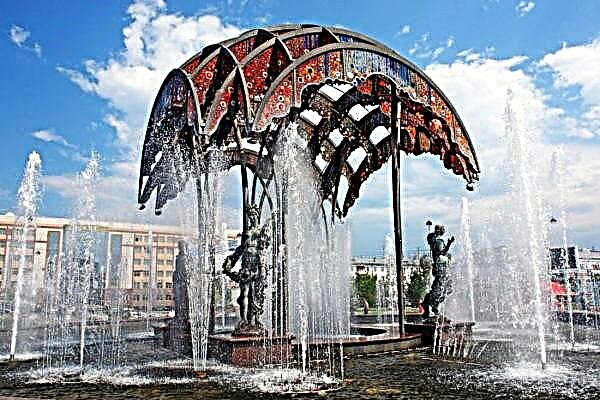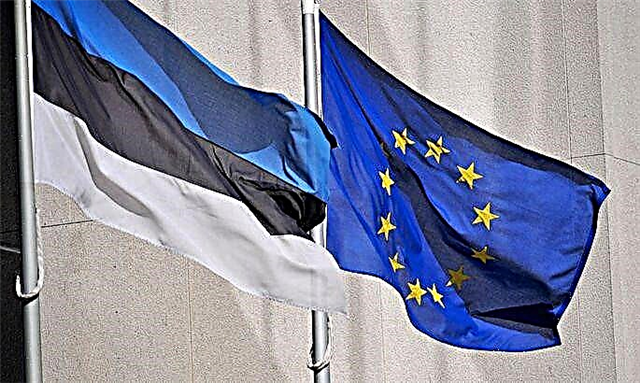Every second person dreams of getting an education in Europe: after all, this is the path to prestigious work, recognition, and interesting acquaintances. And the Czech Republic makes the dream come true. Thanks to its location in the center of the European Union and free education, even for foreign citizens, the Czech Republic is becoming one of the most attractive places for education.
GoStudy - we help to get free higher education in the Czech Republic. We have been working since 1998. With our help, more than 5,000 children from Russia entered the best Czech universities on a budget. We offer an integrated approach: language teaching, nostrification of a certificate / diploma, training programs for specific universities. And, of course, free consultations on the website of the training centerGoStudy.cz
Why the Czech Republic is popular among applicants
Czech universities are considered one of the most prestigious in the world. This fact is confirmed by the results of the world ranking, which were published by a well-known English-language publication in 2016. So, in this ranking there were 12 universities in the Czech Republic on a par with universities in Canada, America and Great Britain.

Advantages of studying in the Czech Republic:
- They are taught according to Western standards, diplomas are appreciated in the European Union and beyond;
- It is possible to receive free education in the national language;
- After training, the graduate can go on an internship, get a prestigious position or start his own business;
- Ways are open for frequent travel and participation in student exchange programs;
- Rental housing and meals are several times cheaper than in other European countries and some CIS countries.
Features of the Czech higher education system
Each student of the university makes up the training program for himself. He chooses the subjects he would like to study and the number of hours per week in each discipline. But the system also provides for compulsory subjects for which the student is allowed to choose his own teacher.
Educational programs (including preschool ones) have a lot in common with the Russian system.
But the organization of the educational process in the Czech Republic differs in several ways, namely:
- Schoolchildren and students are entitled to two vacations per academic year - in summer and winter;
- Summer vacation lasts 2 months;
- Most of the attention is focused on self-study: it takes at least 40% of the student's time.
The academic year begins on September 1, as in most other countries.
You May Also Like
Education programs
As in most European countries, the Czech Republic has a 3-level education system:
- Bachelor's degree. Training for 3-4 years, the goal is to prepare for a master's degree or educate competent teachers;
- Master's degree. It lasts 1-3 years on the basis of a bachelor's degree, without it - 4-6 years. Deepening of theoretical knowledge, development of student's creative abilities;
- Doctorate. Duration 3-4 years. It is chosen by those who are going to advance in scientific activity.
You can study internally, by correspondence and remotely.
Types of Czech universities
- State universities. Ancient establishments known throughout Europe. There are 26 functioning. Their reputation is created by experienced teachers, solid material base and high quality of education;
- Commercial universities... There are 46 modern institutes with different specifics. They teach in Czech and English;
- Separate category. Higher schools, which are almost impossible for a foreigner to get into: the University of Defense and the Police Academy of the Czech Republic. Even a native Czech has to defend his right to enter such an institution.

How to enter a Czech university
For enrollment in students of a Czech university, the initial knowledge of the national language is enough. You can get them in language courses that last several months. Subsequent language learning takes place during training.
Most applicants choose to go to private institutions, and here's why:
- After completing the first year, the student, if desired, can transfer to a state university;
- Students gain more practical knowledge.
Important! Even if communication in the Czech language is not easy for a Russian or Ukrainian, the teachers are loyal to them and try to explain everything.
Admission of foreigners immediately after school
Any foreigner, including a citizen of the Russian Federation, can start studying in the Czech Republic right after school.
You May Also Like
The principles of admission are as follows:
- After the 9th grade: passing a curriculum that can be called an analogue of a Russian college. A foreigner studies for 4 years, he manages to fully master the Czech language and prepare for entering a university;
- After grade 11: admission to any university. To do this, the graduate needs to undergo nostrification of the diploma, that is, to prove that the education received in Russia corresponds to 13-year schooling in the Czech Republic.
To enter the curriculum, you must present a school certificate with good grades, which must be translated into Czech and certified by a notary.

Documents for admission to the university
The main documents that are required to prepare the applicant:
- Application for admission to the institute;
- Nostrification of a certificate or diploma;
- Receipt for payment of the application for admission (costs about 20 euros).
Each university has its own deadlines for accepting documents and requirements for additional papers. Typically, the deadline for filing applications is February / March.
Important! All documents must be completed with a translation into Czech and certified by a notary.
Entrance exams
To enroll in a specialty in the Czech language, you need to successfully pass the national language proficiency test. Some universities examine applicants themselves, others accept certificates. Most universities require a B2 level. A Russian-speaking applicant can reach this level in the annual intensive courses.
The rest of the entrance exams depend on the specialty chosen by the applicant. Their delivery has the following features:
- Many specialties provide for testing in several stages. Thus, applicants for the Faculty of Philosophy of Charles University are examined in 4 stages;
- Taking exams begins in May / June, depending on the specifics of the university;
- National exams SCIO lease starting in December;
- The test result is published on the university website on the day of delivery or a few days later.

Study visa
If the student is admitted to the university, representatives of the educational institution send an invitation, on the basis of which the issuance of a long-term visa of type D begins. The prospective student collects a full package of documents, and then goes for an interview at the Czech embassy.
Important! Consideration of an application for a student visa takes about two months. In some cases, it can take up to 4 months. The applicant will be notified of the status of the application by phone or e-mail.
Cost of education
Education in the Czech Republic can be paid or free. Moreover, universities provide an opportunity to study free of charge even for foreigners, including Russians, Kazakhstanis and Belarusians.
The cost depends on the language in which the information will be presented in pairs:
- Is free: teach in Czech. Statistics show that every eighth applicant from Russia or Ukraine enters a commercial university. The rest study at state institutions, and the money for training is transferred from the country's budget;
- Paid: taught in English. Education takes place by analogy with other Western educational systems: American, Canadian, English and others.
There is a large difference in the level of tuition fees. So, depending on the university, a year of study may cost from 2900 to 16000 euros... Commercial universities will cost more than public ones.
Scholarships and grants for foreigners
Academic achievement incentives are provided not only for Czechs, but also for foreign students. This:
- Accommodation subsidies: 200 euros annually;
- Scholarship for good grades: the amount depends on the university;
- Grants and additional scholarships: depending on the specialty.
Exchange Study Programs
Czech universities massively support international programs. The exchange system is especially popular in this country. Life Long Learning Program... Those wishing to participate in it go to another country, and other students are sent in their place. Young people exchange experiences and learn new specifics of education.
Even foreigners who study at a Czech university can participate in the program. A friendly university in another country accepts students for a period of 1-2 years. This time is enough to meet interesting people and master several new disciplines.
Accommodation for students
Even a non-working student who receives a scholarship can rent a room or apartment in the Czech Republic.
The average rental price for real estate will be as follows:
- 385 euros: apartment;
- 135 euros: dorm room.
Each university - both private and state - has its own hostel. Its cost fully covers the scholarship for living, which is paid to any student.
Nutrition
Food is the next most expensive item for a student. You can shop for groceries and eat at home. On average, it will take about 3000-4500 kroons per month for food.
The best option for a busy student is meals in the university canteen. A month of such food will cost 3000 kroons.
Important! Many cafes, restaurants and canteens provide a discount on the ISIC student card, so you should always have it with you.
Top Universities in the Czech Republic
- Karlova univerzita (Charles University). One of the most prestigious universities, which was founded in 1348. There are more than 10 faculties, three of them are medical, three are theological, physical and mathematical and technical. The official website of the university: www.cuni.cz.
- Vysoká škola ekonomická (University of Economics in Prague). Confidently leads the list of the country's main financial universities, annually takes first places in international rankings. There are 6 faculties and 50 departments working in 80 directions. Official website: www.vse.cz.
- Masarykova univerzita (Masaryk University). One of the largest and most prestigious universities in the country, scientific institutes have been created on its basis. Famous teachers teach here. 9 faculties, 200 departments, training is underway in 1400 categories of specialties. Official website: www.muni.cz
- Vysoká škola chemicko-technologická v Praze (University of Chemical Technology). The leader of the chemical-technological training industry among all universities in Europe. There is an active introduction of the latest developments in the field of biotechnology. Foreigners can enter this university even without exams, having passed a test in the Czech language. Official website: www.vscht.cz.

Student reviews about studying in the Czech Republic
Olga, Yekaterinburg:I sent my daughter to study in the Czech Republic, now she is finishing her second year in the specialty "international trade". Education is completely free, they also pay a scholarship, my daughter is happy. But they teach in Czech. She left for the Czech Republic immediately after grade 11, studied for a year on paid courses - they were in English + Czech separately. She successfully passed the entrance exams and entered 2 universities. I chose a university in Prague. Now she is studying, working, renting an apartment with a guy with whom she met in the same place, in the Czech Republic. My advice is that in order to save money, you don't need to take these one-year courses, because they are paid and not cheap. You can take Czech courses in Russia, and improve the language on the spot.
Marina, Moscow region: I did not choose the Czech Republic voluntarily: I won a grant that provided free education until the very end. I thought - why not? After all, living there is much cheaper than in Russia. I hoped that I would quickly adapt and go to work. I have lived for over a year, but I can’t take it anymore. I don’t deny that I gave up quickly, but it didn’t make it any easier. During my life here I realized - no matter how much you worked here, you will always be perceived as an emigrant. I did not manage to get a prestigious position, I worked in a nail salon. In the best case, a native of the CIS can be admitted to office work - to transfer papers from place to place. I continue to study, I still hope for something, but I understand that my stupidity is to blame for everything.
Julia, Brno: I would like to tell you about my experience of studying in the Czech Republic. I attended the Prague education center courses at the Brno branch for a year. The teachers there are simply wonderful, the educational process is built conveniently and affordably. Each group has no more than 15 people, so teachers can allocate as much time to each student as needed. In general, this is a great place for those who came to the Czech Republic to study and are ready to put maximum effort into their development.
Universities in the Czech Republic are not inferior to educational institutions in other Western countries in terms of their prestige. Students from Russia, Ukraine, Belarus and Kazakhstan will be able to get a quality education without paying a dime for it. For this, the main thing is to have the desire and make every possible effort to achieve the goal.











